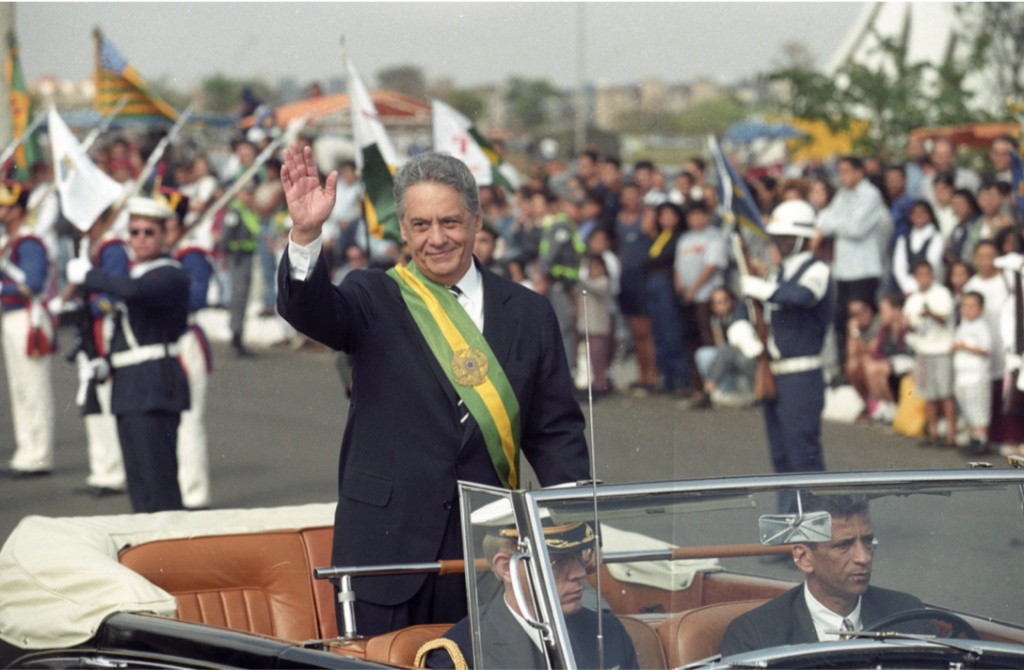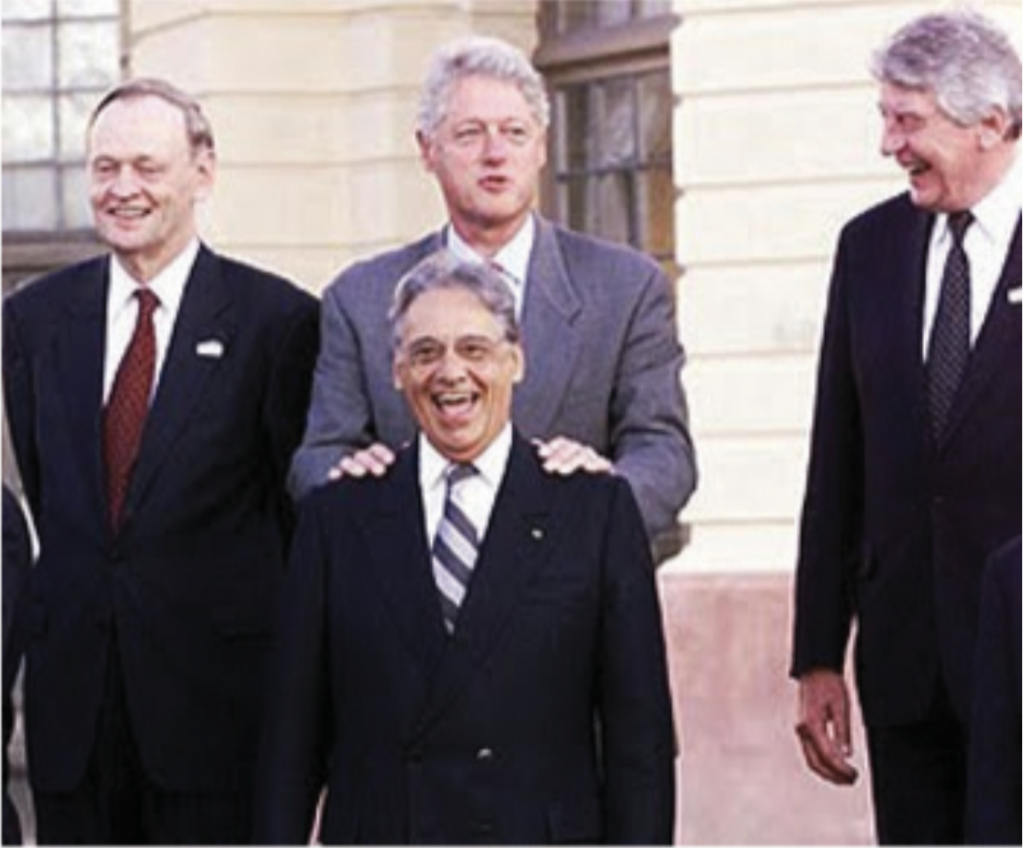

After Brazil’s return to democracy, Fernando Henrique Cardoso (or FHC) was the first President to stay in office for two full terms and thus develop a distinct platform and reputation. A longtime social sciences scholar who had briefly headed the Ministry of Foreign Relations during the previous administration, FHC had helped build the Party of the Brazilian Social Democracy (PSDB), which became one of the main political forces in the new democratic era. He heralded new priorities for Brazilian foreign relations, one with consequences for its relations with the United States. He sought Brazil’s international autonomy through integration—that is, turning Brazil into an active agent in world forums, defending its interests while avoiding excessive tensions or complete alignments with any one partner. Additionally, Brazil increased its interest in its Latin American relations, spearheading efforts to strengthen the Mercosur.
FHC also elevated his own profile as a negotiator, inaugurating in Brazil the model of presidential diplomacy. Maintaining warm relations with the United States and partnering with that country in business and many other issues, FHC nonetheless also pursued independent Brazilian interests, such as using the new World Trade Organization to defend Brazil from U.S. agricultural protectionism. In doing so, Brazil slowly positioned itself as a leader of the developing world in seeking new opportunities for economic emancipation. This trend in Brazilian international relations was carried on by FHC’s successor, Lula, one of the founders of the Worker’s Party (PT). Lula also adopted a strategy of taking on an active role in international policymaking, furthering the goal of making emerging international legal regimes favorable to Brazilian and developing world interests. Both leaders, even if from at-times opposite ideological camps (although once in office their differences were much less marked), sought in the relationship with the United States a reliable partner to help in Brazil’s modernization and growth efforts. However, they were also not afraid to voice their opposition to U.S. stances viewed as protectionist and unfair to Brazil’s own interests.
Readings:
Tullo Vigevani, Marcelo Fernandes de Oliveira and Timothy Thompson, “Brazilian Foreign Policy in the Cardoso Era: The Search for Autonomy through Integration.” | English
Jeffrey W. Cason and Timothy J. Power, “Presidentialization, Pluralization, and the Rollback of Itamaraty: Explaining Change in Brazilian Foreign Policy Making in the Cardoso-Lula Era.” | English
Documents:
Document No. 13: Sara Regine Hassett and Christine Weydig, “An Interview with Fernando Henrique Cardoso.” | English



